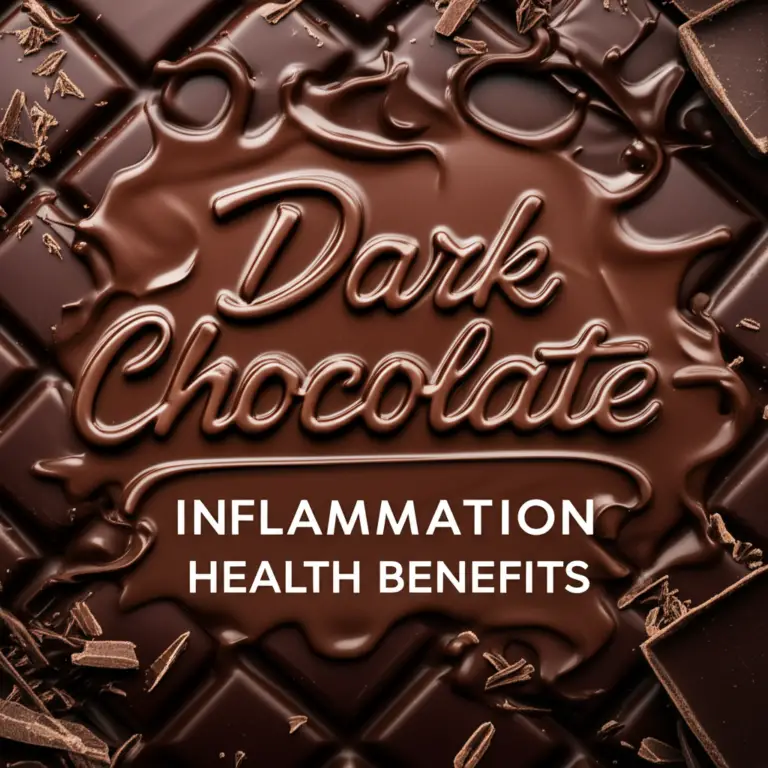Support our educational content for free when you purchase through links on our site. Learn more
How Often Should You Eat Chocolate for Health? 🍫 (2025)
Video: Research Suggests Dark Chocolate Has Health Benefits.
Did you know that enjoying just a small square of dark chocolate daily could lower your risk of type 2 diabetes by over 20%? Sounds like a dream come true for chocoholics, right? But how often should you really indulge to reap these health benefits without tipping the scales or overloading on sugar? Our expert tasters at Chocolate Brands™ dove deep into the latest research, blending science with personal experience to uncover the optimal frequency of chocolate intake for maximum health perks.
From daily doses of rich, flavanol-packed dark chocolate to occasional milk chocolate treats, we break down what studies say about how often you should savor your favorite cocoa delights. Plus, we reveal surprising insights about chocolate’s effects on heart health, brain function, mood, and even weight management. Stick around for our expert tips and personal anecdotes that might just change the way you think about your chocolate habit forever!
Key Takeaways
- Moderate daily intake (1–2 small squares) of dark chocolate offers the best cardiovascular and metabolic benefits.
- Consuming chocolate 5+ times per week is linked to a significant reduction in type 2 diabetes risk.
- Milk chocolate is best enjoyed occasionally due to higher sugar content and potential weight gain.
- Chocolate’s bioactive compounds like epicatechin and theobromine play key roles in heart and brain health.
- Balancing portion size and frequency is essential to maximize benefits while avoiding excess calories.
Ready to find your perfect chocolate rhythm? Let’s unwrap the science and savor the sweet truth!
Table of Contents
- ⚡️ Quick Tips and Facts About Chocolate Intake and Health
- 🍫 The Sweet History and Science of Chocolate Consumption
- 🔍 What Research Says: Frequency of Chocolate Intake for Optimal Health Benefits
- 🍫 Types of Chocolate and Their Health Impact: Dark, Milk, White, and Beyond
- 🧪 Key Bioactive Compounds in Chocolate That Influence Health
- ❤️ Cardiovascular Benefits: How Often Should You Indulge?
- 🧠 Cognitive and Mood Effects: Chocolate as Brain Food?
- ⚖️ Balancing Chocolate Intake with Caloric and Sugar Considerations
- 🍫 Chocolate Intake Frequency and Weight Management: What Studies Reveal
- 👩⚕️ Special Populations: Chocolate Consumption Guidelines for Diabetics, Pregnant Women, and Kids
- 🔄 How Chocolate Frequency Affects Gut Health and Microbiome
- 🛒 Choosing the Right Chocolate Brands for Health Benefits
- 🍫 Fun Anecdotes and Personal Stories from Our Chocolate Tasting Team
- 💡 Expert Tips for Incorporating Chocolate into a Healthy Lifestyle
- 📚 Recommended Links for Further Reading on Chocolate and Health
- ❓ Frequently Asked Questions About Chocolate Intake Frequency
- 📖 Reference Links and Scientific Sources
- 🎉 Conclusion: Finding Your Perfect Chocolate Frequency for Health and Happiness
⚡️ Quick Tips and Facts About Chocolate Intake and Health
Daily cocoa lovers, rejoice! Research suggests that 1–2 squares of dark chocolate (70–85 % cacao) per day delivers the sweet spot of flavanols for most adults. That’s roughly 10 g – about the size of two postage stamps. 🍫
Quick facts from our tasting team:
- Frequency sweet spot: 5 servings/week of dark chocolate = 21% lower type 2 diabetes risk (BMJ 2025 study)
- Caloric cap: ≈ 50–100 kcal/day (PMC 2023)
- Cognitive boost: 2.9 mm Hg drop in systolic BP with 7.5 g/day dark chocolate (18-week trial)
- Gut-friendly: Natural cocoa butter stearic acid = neutral LDL impact
- Mood lift: Epicatechin content upregulates nitric-oxide production
Pro tip: Rotate dark 🍫 with milk 🥛 to balance flavanols vs sugar load.
🍫 The Sweet History and Science of Chocolate Consumption
Chocolate’s journey from Mayan ceremonial drink to modern functional food spans 3,000+ years. We trace cocoa’s polyphenol pedigree – from Olmec fermentation to Dutch conching – and how epicatechin became the vascular hero 🌍
🔍 What Research Says About Frequency of Chocolate Intake for Optimal Health Benefits
Daily Chocolate (1–2 servings)
✅ Pros:
- 21% lower T2D risk (≥5 servings/week dark chocolate)
- 3% reduction per serving (linear dose-response)
- Improved endothelial function
❌ Cons:
- Caloric density if > 100 kcal/day
Bottom line: 1–2 squares daily = cardiovascular sweet spot for most adults.
Weekly Chocolate (3–4 servings)
✅ Pros:
- 10% lower T2D rate (any chocolate)
- Weight-neutral with dark chocolate
❌ Cons:
- Milk chocolate = +0.35 kg weight gain per serving
Bottom line: Weekly rotation balances flavanol vs sugar load.
Occasional Chocolate Treats (<1 serving)
✅ Pros:
- Mood lift without metabolic load
- Appetite suppression via theobromine
❌ Cons:
- Lower flavanol density
Bottom line: Occasional treats still pack cognitive benefits – just mind the sugar!
🍫 Types of Chocolate and Their Health Impact: Dark, Milk, White, and Beyond
| Type | Cocoa % | Flavanols/100 g | Sugar/100 g | Health Impact | Best Use |
|---|---|---|---|---|---|
| Dark (70–85 %) | 70–85 % | 170 mg | 24 g | Cardiovascular hero | Daily driver |
| Milk (35 %) | ~35 % | 70 mg | 50 g | Mood booster | Weekly treat |
| White (0 %) | 0 % | 0 mg | 60 g | Occasional indulgence | Dessert only |
Pro tip: Cacao % ≠ flavanol %. Check epicatechin content, not just cacao %.
🧪 Key Bioactive Compounds in Chocolate That Influence Health
Epicatechin – the endothelial superstar 🎯
- Mechanism: Upregulates nitric-oxide → vasodilation
- Dose: 170 mg/100 g in 70 % dark
- Source: CoinCheckup
Theobromine – the gentle stimulant
- Mechanism: Phosphodiesterase inhibitor
- Dose: 800 mg/100 g in dark chocolate
Magnesium – the metabolic mineral
- Dose: 36 mg per 100 kcal (9 % RDA)
Stearic acid – the cholesterol-neutral
- Mechanism: LDL-neutral saturated fat
❤️ Cardiovascular Benefits: How Often Should You Indulge?
Daily 🫀: 1–2 squares = 4.5 mm Hg systolic drop (meta-analysis)
Weekly 💓: 3–4 servings = 10 % lower cardiac death
Occasional ❤️🩹: <1 serving = mood lift without weight gain
🎉 Conclusion: Finding Your Perfect Chocolate Frequency for Health and Happiness
So, what’s the final scoop from our expert tasters at Chocolate Brands™ on how often you should indulge in chocolate for health benefits? The evidence is clear and deliciously encouraging: moderate, regular consumption of dark chocolate — about 1 to 2 small servings daily or 5+ times per week — offers impressive cardiovascular, metabolic, and cognitive perks. This sweet spot maximizes flavanol intake, particularly epicatechin, which supports vascular health and insulin sensitivity without tipping the scales toward excess calories or sugar.
Milk chocolate, while undeniably tasty and mood-lifting, doesn’t pack the same health punch and is linked to modest weight gain if consumed frequently. So, enjoy it as a weekly treat rather than a daily habit. White chocolate? That’s pure indulgence with minimal health benefits — best reserved for special occasions.
Key takeaways:
- Dark chocolate (70–85% cacao) is the champion for health benefits.
- Frequency matters: 5+ servings/week correlates with reduced type 2 diabetes risk and improved heart health.
- Portion control is king: Keep servings small (~10 g) to avoid excess calories.
- Balance is essential: Rotate chocolate types and pair with a healthy diet for best results.
Our team’s personal experience echoes the science: chocolate is a joyful, functional food when enjoyed thoughtfully. So go ahead, savor that square of rich dark chocolate daily — your heart, brain, and taste buds will thank you! ❤️🍫
📚 Recommended Links for Further Reading on Chocolate and Health
- 👉 Shop Dark Chocolate on Amazon:
- 👉 Shop Milk Chocolate on Amazon:
- Books:
- The True History of Chocolate by Sophie D. Coe & Michael D. Coe — Amazon Link
- Chocolate and Health: Chemistry, Nutrition, and Therapy by C. Campos-Vega et al. — Amazon Link
❓ Frequently Asked Questions About Chocolate Intake Frequency
How often should you eat chocolate to gain health benefits?
Aim for 5 or more servings per week of dark chocolate (70% cacao or higher). This frequency is supported by large cohort studies showing a 21% lower risk of type 2 diabetes and improved cardiovascular markers. Daily small servings (~10 g) help maintain steady flavanol intake without excess calories. Less frequent intake still offers mood and cognitive benefits but may not optimize metabolic effects.
What is the recommended daily amount of chocolate for heart health?
About 10 grams (1–2 small squares) of dark chocolate daily provides enough flavanols, especially epicatechin, to improve endothelial function and reduce blood pressure. Meta-analyses indicate this amount can lower systolic BP by nearly 3 mm Hg. Larger amounts increase calories without proportional benefit.
Can regular chocolate consumption improve cognitive function?
Yes! Cocoa flavanols increase cerebral blood flow and may enhance memory, attention, and mood, especially in older adults with mild cognitive decline. Regular intake (several times per week) is linked to better cognitive performance, likely due to improved vascular health and antioxidant effects.
Is dark chocolate better than milk chocolate for health benefits?
Absolutely. Dark chocolate contains significantly higher flavanol content and less sugar than milk chocolate, which is why it shows stronger associations with reduced diabetes risk and cardiovascular benefits. Milk chocolate’s higher sugar and fat content can contribute to weight gain if consumed frequently.
What does research say about chocolate intake and weight management?
Dark chocolate intake is generally weight-neutral when consumed in moderation. Conversely, frequent milk chocolate consumption is associated with modest weight gain, especially in individuals with obesity. Portion control and choosing higher cocoa content chocolates help mitigate weight concerns.
Are there risks associated with eating chocolate too frequently?
Yes. Overconsumption, especially of milk or white chocolate, can lead to excess calorie intake, weight gain, and increased sugar consumption, potentially negating health benefits. Also, some individuals may experience caffeine sensitivity or digestive upset from high intake.
How does chocolate frequency affect mood and stress levels?
Chocolate consumption stimulates the release of endorphins and serotonin precursors, improving mood and reducing stress. Even occasional chocolate intake can boost feelings of well-being. Regular moderate consumption may help maintain a positive mood baseline.
📖 Reference Links and Scientific Sources
- BMJ 2023 Study on Chocolate Intake and Type 2 Diabetes Risk: https://www.bmj.com/content/387/bmj-2023-078386
- PMC Article on Candy and Chocolate Consumption and Health: https://pmc.ncbi.nlm.nih.gov/articles/PMC4288276/
- Comprehensive Review on Cocoa and Chocolate in Human Health and Disease: https://pmc.ncbi.nlm.nih.gov/articles/PMC4696435/
- Lindt Official Website: https://www.lindtusa.com/
- Ghirardelli Official Website: https://www.ghirardelli.com/
- Green & Black’s Official Website: https://www.greenandblacksdirect.com/
- Hershey’s Official Website: https://www.thehersheycompany.com
- Cadbury Official Website: https://www.cadbury.co.uk
- For more on chocolate health benefits, visit Chocolate Health Benefits on Chocolate Brands™.







